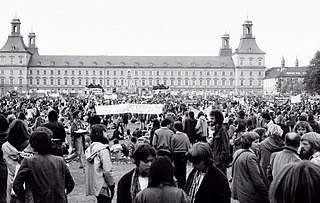 W
WThe anti-nuclear movement is a social movement that opposes various nuclear technologies. Some direct action groups, environmental movements, and professional organisations have identified themselves with the movement at the local, national, or international level. Major anti-nuclear groups include Campaign for Nuclear Disarmament, Friends of the Earth, Greenpeace, International Physicians for the Prevention of Nuclear War, Peace Action and the Nuclear Information and Resource Service. The initial objective of the movement was nuclear disarmament, though since the late 1960s opposition has included the use of nuclear power. Many anti-nuclear groups oppose both nuclear power and nuclear weapons. The formation of green parties in the 1970s and 1980s was often a direct result of anti-nuclear politics.
 W
WAnti-nuclear protests in the United States have occurred since the development of nuclear power plants in the United States. Examples include Clamshell Alliance protests at Seabrook Station Nuclear Power Plant, Abalone Alliance protests at Diablo Canyon Power Plant, and those following the Three Mile Island accident in 1979.
 W
WPAWB is a campaign group established in 1988 to oppose the construction of a second nuclear power plant at Wylfa on the north coast of the Island of Anglesey, Wales.
 W
WBellona — St. Petersburg is a branch of the environmental rights organization the Bellona Foundation, which is headquartered in Oslo, Norway. Founded in 1986, the Bellona Foundation primarily functions as a nuclear watchdog and focuses on developments in Russia.
 W
WThe Bellona Foundation is an international environmental NGO based in Oslo, Norway. Founded in 1986 by Frederic Hauge and Rune Haaland as a direct action protest group to curb Norway's oil and gas industry pollution, it became multi-disciplinary and international in scope and now maintains offices in Oslo, Murmansk, St. Petersburg, Brussels and Washington, D.C. To achieve its goal Bellona employs ecologists, scientists with expertise ranging from the natural to the social sciences, engineers, economists, lawyers, and journalists.
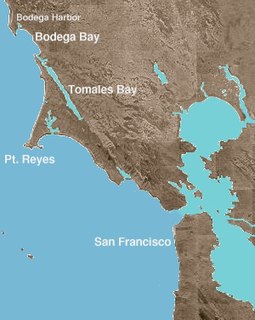 W
WBodega Bay is a shallow, rocky inlet of the Pacific Ocean on the coast of northern California in the United States. It is approximately 5 mi (8 km) across and is located approximately 40 mi (60 km) northwest of San Francisco and 20 mi (32 km) west of Santa Rosa. The bay straddles the boundary between Sonoma County to the north and Marin County to the south. The bay is a marine habitat used for navigation, recreation, and commercial and sport fishing.
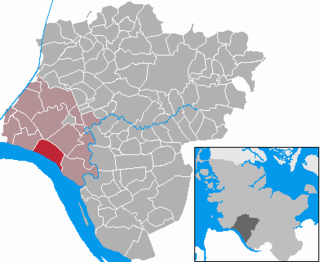 W
WBrokdorf is a municipality in the district of Steinburg, in Schleswig-Holstein, Germany. It is located on the bank of the Elbe river, approx. 20 km east before the river flows into the North Sea. As of December 2019, the total population of Brokdorf was 965 residents.
 W
WCritical Masses: Opposition to Nuclear Power in California, 1958–1978 is the first detailed history of the anti-nuclear movement in the United States, written by Thomas Wellock. It is also the first state-level research on the subject with a focus on California. Reviewer Paula Garb has said: The book is rich with vivid verbal pictures and the passionate voices of participants on all sides of the controversy around the peaceful atom. It is based on interviews, documents from state and federal archives, and activist papers. Wellock brings to this project the expertise of a former engineer for civilian and navy nuclear reactors, a thorough archivist, and a sensitive interviewer.
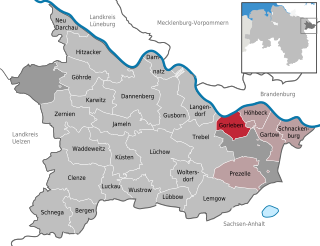 W
WGorleben is a small municipality (Gemeinde) in the Gartow region of the Lüchow-Dannenberg district in the far north-east of Lower Saxony, Germany, a region also known as the Wendland.
 W
WThe Green Party Korea is a political party in South Korea. The Green party was established in March 2012. It is a continuation of the Korea Greens, created following initial discussions in 2011. The party was established in response to the Fukushima Nuclear Crisis of Japan. Green Party Korea is a member of the Global Greens and the Asia Pacific Greens Federation. As a result of the party only getting 0.48% in the 19th national parliamentary election in April 2012, the party was disbanded by the National Election Administration Office.
 W
WInternational Physicians for the Prevention of Nuclear War (IPPNW) is a non-partisan federation of national medical groups in 63 countries, representing doctors, medical students, other health workers, and concerned people who share the common goal of creating a more peaceful and secure world free from the threat of nuclear annihilation. The organization's headquarters is in Malden, Massachusetts. IPPNW was awarded the Nobel Peace Prize in 1985.
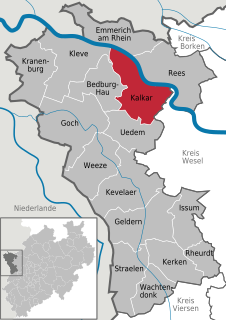 W
WKalkar (German: [ˈkalkaːɐ̯] is a municipality in the district of Kleve, in North Rhine-Westphalia, Germany. It is located near the Rhine, approx. 10 km south-east of Cleves. The most famous building of Kalkar is its church St. Nicolai, which has one of the most significant sacral inventory from the late Middle Ages in Europe.
 W
WMusicians United for Safe Energy, or MUSE, is an activist group founded in 1979 by Jackson Browne, Graham Nash, Bonnie Raitt, Harvey Wasserman and John Hall. The group advocates against the use of nuclear energy, forming shortly after the Three Mile Island nuclear accident in March 1979. MUSE organized a series of five No Nukes concerts held at Madison Square Garden in New York in September 1979. On September 23, 1979, almost 200,000 people attended a large rally staged by MUSE on the then-empty north end of the Battery Park City landfill in New York.
 W
WThe Nuclear Information and Resource Service (NIRS) is an anti-nuclear group founded in 1978 to be the information and networking center for citizens and organizations concerned about nuclear power, radioactive waste, radiation and sustainable energy issues. The organization advocates the implementation of safe, sustainable solutions such as energy efficiency, solar power, wind power and plug-in hybrids.
 W
WNuclear Nebraska: The Remarkable Story of the Little County That Couldn’t Be Bought is a 2007 book by Susan Cragin which follows the controversy about a proposed low level nuclear waste dump, which was planned for Boyd County, Nebraska.
 W
WThe Sierra Club is an environmental organization with chapters in all 50 United States, Washington D.C., and Puerto Rico. The club was founded on May 28, 1892, in San Francisco, California, by the Scottish-American preservationist John Muir, who became the first president, as well as the longest serving president at approximately 20 years in this leadership position. The Sierra Club operates only in the United States. Sierra Club Canada is separated from the Sierra Club.
 W
WThe Wackersdorf nuclear reprocessing plant is a reprocessing plant in Wackersdorf in Bavaria, Germany. Because of protests the plant was never completed. Today it is an industrial site with no special features.
 W
WWyhl is a municipality in the district of Emmendingen in Baden-Württemberg in southwestern Germany.
 W
WZwentendorf an der Donau is a small market municipality in the Austrian state of Lower Austria. It is located at 48°21′N 15°54′E, in the Tulln Basin on the southern bank of the Danube. The place attained public attention as the site of the only Austrian nuclear power station, which was completed but never went into operation. In a referendum on 5 November 1978, a narrow majority of 50.5% voted against putting the Zwentendorf nuclear plant into operation.